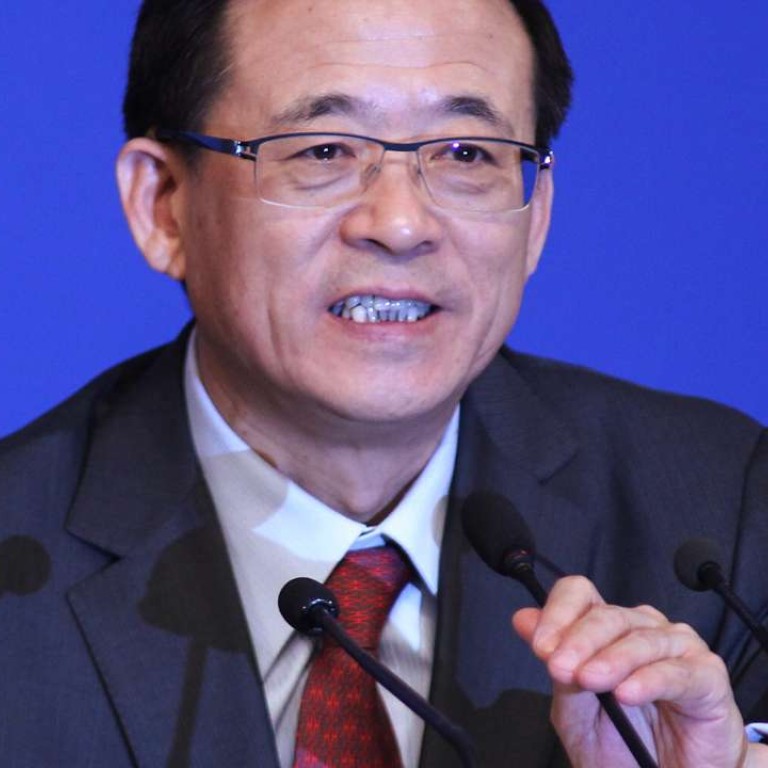
Mainland’s OTC start-up equity market to be given fillips, as Hong Kong dithers
CSRC chairman Liu Shiyu says New Third Board will be given a bigger role in cultivating technology firms
As Hong Kong is believed to be finalising its own start-up board, the mainland’s securities regulator appears to have stolen a march on its potential rival, by announcing a planned expansion and liberalisation of the rules governing its so-called New Third Board, officially called The National Equities and Exchange Quotations.
The first batch of firms traded on the over-the-counter (OTC) market – based in Beijing and dubbed as the “nursery garden” by China Securities Regulatory Commission (CSRC) chairman Liu Shiyu – will also likely be expanded to the Shenzhen Stock Exchange soon, part of the regulator’s efforts to better connect the different layers of the mainland’s capital market.
Liu has told a government conference that the New Third Board, will be given a bigger role in cultivating technology firms.
His remarks were echoed by the Shenzhen bourse, which published a statement soon after to announce it would allow direct transfer of firms from the OTC market in Shanghai to its trading floor on a trial basis.
Hong Kong Exchanges and Clearing Limited is planning to attract more technology start-ups,and expects to create its own new board, with lower entry requirements and governance standards, especially by allowing dual-class share structures. But no timetable has yet been set for its launch.
Under the CSRC’s new direct transfer system, companies with solid earnings and strong market capitalisations on the OTC market will be able to list too on the Shenzhen exchange, without going through an initial public offering (IPO) application procedure.
“Founders of start-up firms will be elated by the news as they will be given a new path to the stock market,” said Zhang Hongbo, a partner with Hiways Law Firm, who deals with legal affairs for a clutch of firms listed on the OTC market.

“The policy also adds lustre to the OTC market itself as the regulator reiterates its importance in the development of a multi-layer capital market.”
Detailed rules about the relisting plans have yet to be unveiled.
Launched in 2013 to trade in Shanghai, The New Third Board is now home to more than 10,600 small firms, among which, about 950 are traded on the “innovation level” – a special status that reflects their robust financial performances and larger market capitalisations.
The CSRC divided the electronic equity transfer system into two levels last year, sifting out quality firms from the “basic level” while moving them to the “innovation level.”
The companies traded on the innovation level were believed then to likely have the potential to list on both the Shanghai and Shenzhen stock exchanges after further CSRC deregulation.
Despite the impressive numbers, the New Third Board has been seen by many as a somewhat slumbering market, amid weak liquidity.
Last year, annual turnover was 200 billion yuan (HK$226 billion), equivalent to just a single day’s trading on the Shanghai Stock Exchange.
The introduction of a direct transfer system to Shenzhen is aimed at attracting more cash-hungry businesses to seek capital infusion, or what Liu called “fertile soil”, to help prospective technology start-ups grow.
The market has been rife with speculation the regulator will also soon reduce the minimum capital requirement for individual investors who hope to trade on the OTC market.
Presently, a retail investor is barred from trading on the board unless it has at least 5 million yuan worth of assets including shares, mutual funds, bonds, and cash.
Companies with strong earnings might choose the board on which to list its shares first while seeking a direct transfer later
The lower threshold for individual investors is expected to spark an influx of capital as millions of mainland residents seek investment alternatives to main listed stocks and properties.
More than 600 IPO applicants are awaiting a green light from the CSRC to start raising funds on the A-share market.
It will take about two years for all of them to secure an approval to float new shares, based on the current IPO pace controlled by the regulator.
“Companies with strong earnings might choose the board on which to list its shares first while seeking a direct transfer later,” said Cang Zongfeng, a researcher at the New Third Board Club, an investment consultancy.
“It’s obvious there are quite a number of the firms worth investing in, but risks are also high since the majority are early-stage firms which could incur heavy losses for unseasoned investors.”
The total market value on The Third Board stands at 4 trillion yuan, compared to the combined 53 trillion yuan value of the Shanghai and Shenzhen stock exchanges. Those two have 120 million investors, while The Third Board has only 200,000 trading accounts.
The CSRC’s decision to widen the OTC market represents Beijing’s latest efforts to inject entrepreneurial vigour into the world’s second-largest economy.
The country is in pursuit of its own technology giants that could take on global big names such as Apple and Tesla.

